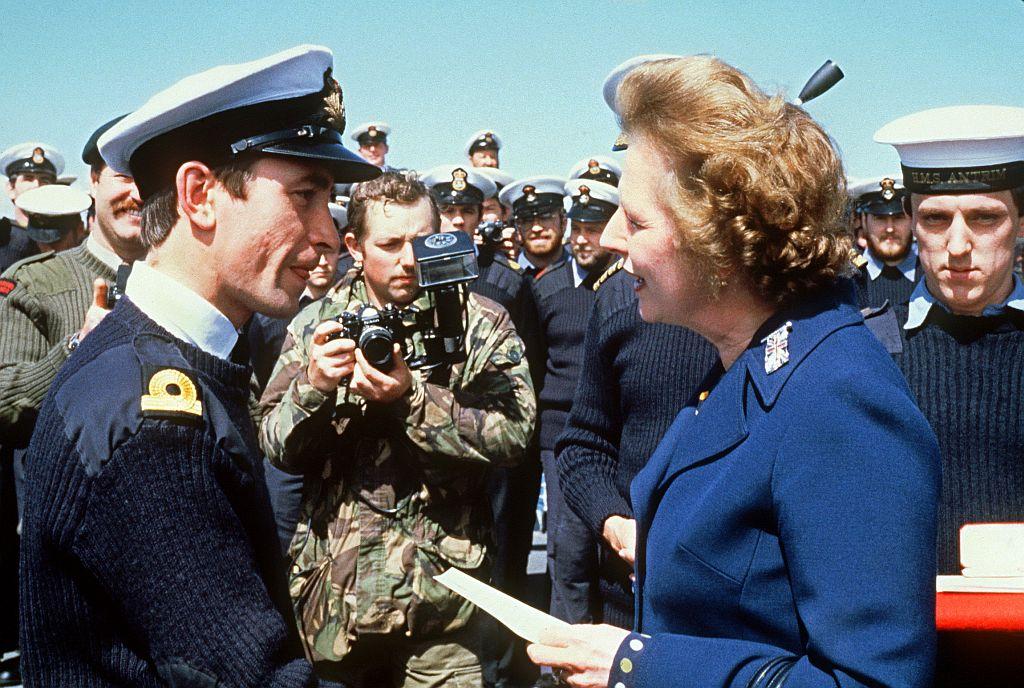The Lady wobbled? Thatcher considered ‘withdrawing’ from Northern Ireland
Prime Minister Thatcher meets naval personnel, 8 January 1983, during a five-day visit to the Falkand Islands. The Falklands War between the UK and Argentina was a defining point in Thatcher’s premiership.
LONDON, UK — “Even worse than we thought,” former Prime Minister Margaret Thatcher scrawled across the top of a 1983 memo detailing the escape of 38 inmates from Northern Ireland’s notorious Maze prison.
The worst prison break in British history happened just months after Thatcher confessed in a private meeting with the Northern Irish secretary that she doubted Britain would solve the Troubles, the conflict between Irish republicans and pro-British unionists that ultimately took more than 3,700 lives in 30 years.
Those details emerged this week from a trove of 1983 government documents declassified after 30 years under UK public information law.
In addition to the draft of a speech penned for the queen in case of nuclear war, the documents offer new insight into a turbulent year of Margaret Thatcher’s administration.
They reveal that she struggled for support from her cabinet for spending cuts that were significantly smaller than the austerity measures the current government is undertaking — and while enjoying a parliamentary majority far larger than the current coalition between Conservatives and Liberal Democrats.
The documents also show she considered calling in the army during the coal miners’ strike, and deployed a laser weapon to dazzle enemy pilots during the Falklands War.
In less consequential matters, she was also lobbied with surprising vigor by government officials to ask China for a fertile female panda during an official visit.
Thatcher died in April at age 87.
More from GlobalPost: How the Queen would have announced World War III
In the Northern Ireland conflict, Thatcher found the news of the deadly escape of 38 Irish Republican Army inmates so demoralizing that she asked about the possibility of a “tactical withdrawal” from the restive region — a move that would have amounted to victory for republican backers of a united Ireland.
Jim Prior, secretary of state for Northern Ireland, cautioned that such a move would lead to “civil war.” The conflict dragged on for another 15 years before the 1998 Good Friday Agreement brought an official end to the Troubles.
Thatcher’s famed tenacity is evident in the documents. When advisers suggested she meet with the author of a European Parliament report on Northern Ireland that she deemed an offensive intrusion on national sovereignty, she balked.
“A meeting would compromise our basic position,” she wrote and underlined three times. “I am absolutely against it. Weakness never pays. It only invites further requests.”
Government files from 1984 will be released to the public by December. Previously, the National Archives has made government documents available to the public after 30 years. An amendment to the Public Records Act passed last year will shrink that gap to 20 years by 2022.
Every day, reporters and producers at The World are hard at work bringing you human-centered news from across the globe. But we can’t do it without you. We need your support to ensure we can continue this work for another year.
Make a gift today, and you’ll help us unlock a matching gift of $67,000!
